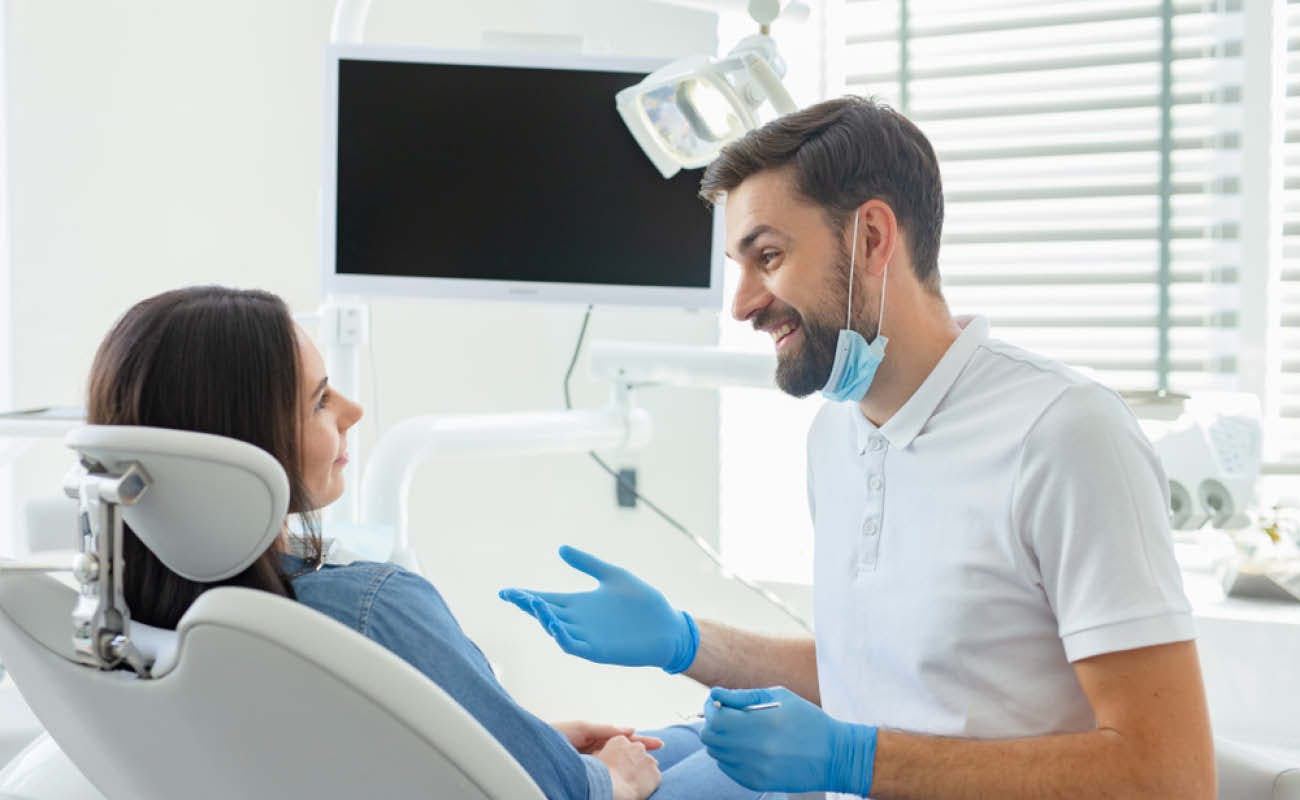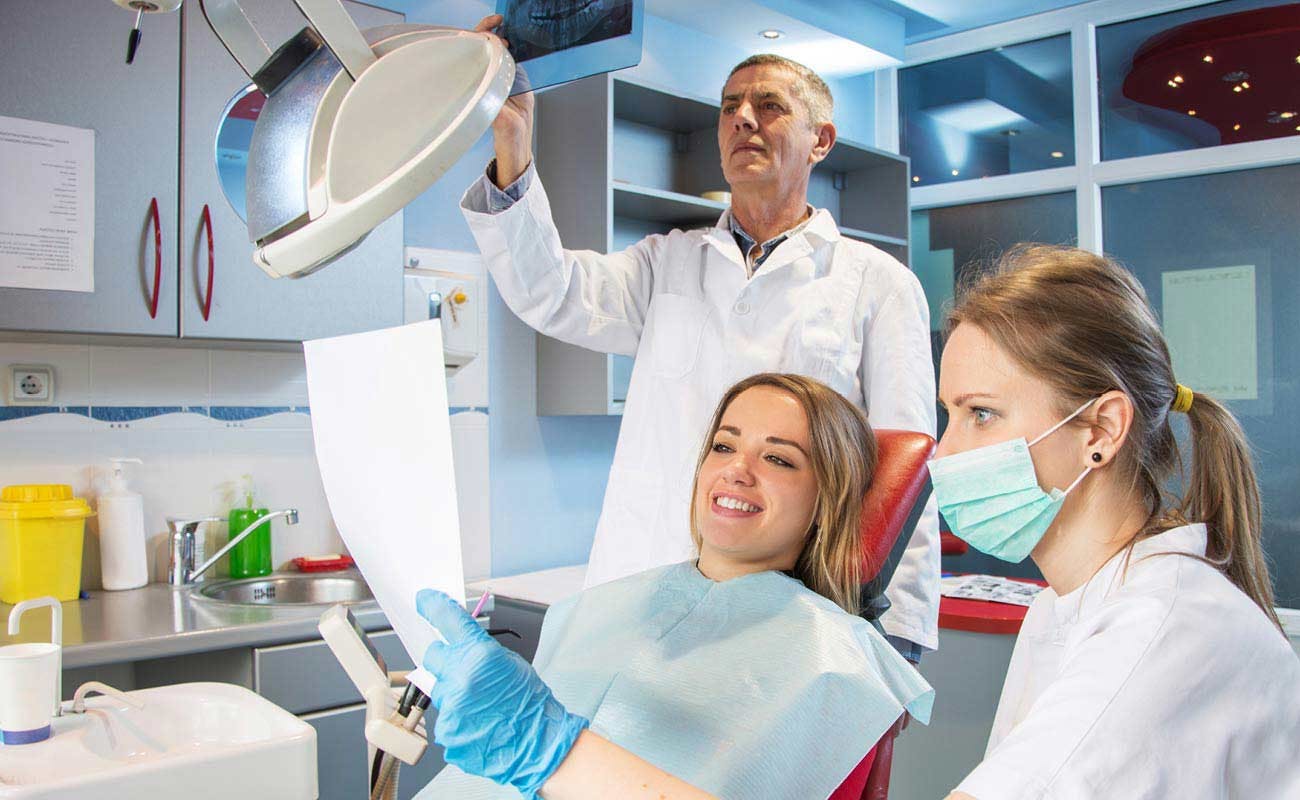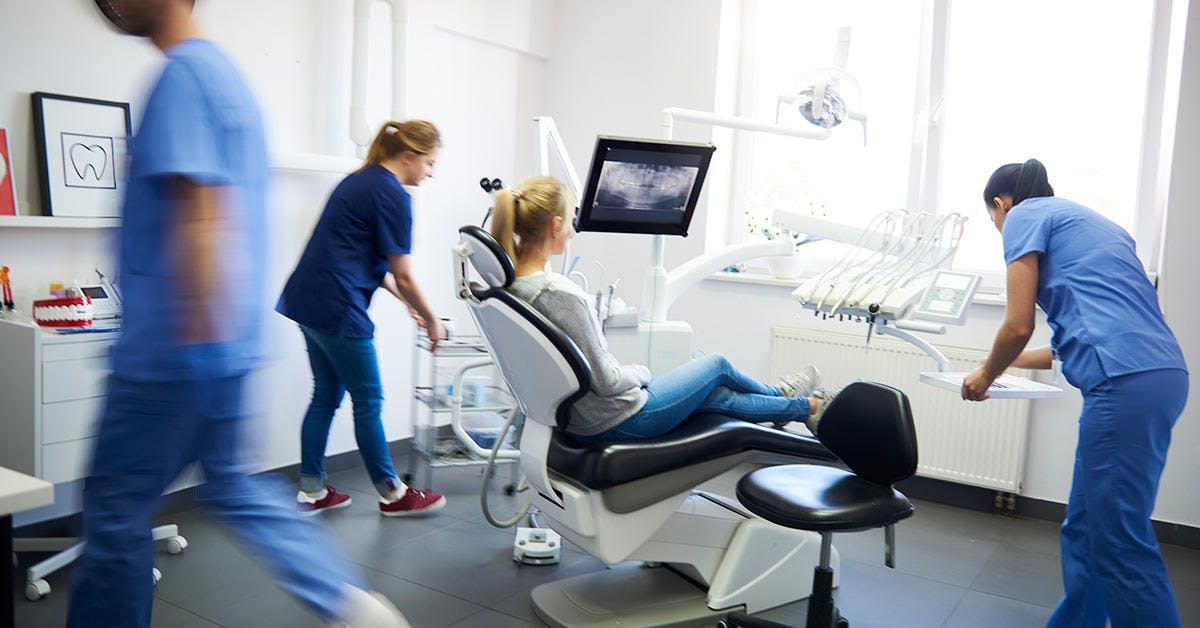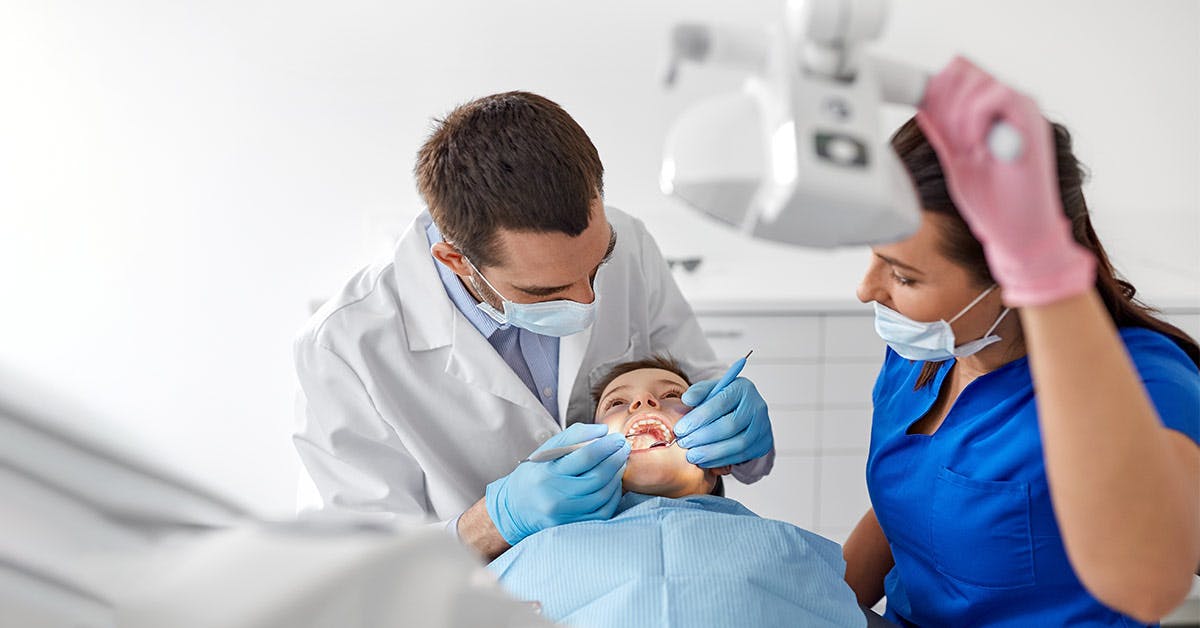19 Jul 2021
Careers You Can Pursue With A Dentistry Qualification
A nationally recognised dentistry course can open the door to a wide array of career choices, from a dentist assistant right through to owning and operating your own practice!
See where a dentistry course completed with Foundation Education can take you, and find out more about dentistry in Australia.
The careers we have chosen to highlight are a combination of entry-level positions requiring a Certificate III or IV, while others will require the completion of a university course.
Dental Assistant
Whether you are looking for full-time, part-time or casual work, you’ll find that there is no shortage of work when it comes to being a Dental Assistant.
As part of your day-to-day work, you’ll find yourself undertaking a variety of tasks, from as simple as liaising with patients to facilitating admin tasks, preparing the dental chair and treatment area for dental procedures, assisting clinicians during procedures, developing x-rays and much more.
Suited to individuals with strong communication skills as well as a caring nature, a career in dental assisting presents a number of opportunities within the health sector.
Dental Hygienist
As a Dental Hygienist, you’re one step closer to the patient and will be taking on additional responsibility than that of a Dental Assistant. A Dental Hygienist undertakes examinations for oral diseases, including gingivitis, while also performing cleaning and polishing of a patient’s teeth.
They also advise patients on how they can improve their oral health, which can go a long way towards positively impacting patients’ lives.

General Dentist
Of course, you can’t discuss dentistry courses without mentioning the role of a General Dentist. Similar to the role of a GP, a General Dentist undertakes everyday procedures including oral health care, disease prevention, general tooth and gum maintenance (including cleaning and fluoride treatments), as well as root canals and cavity fillings.
Also worth noting is the salary of a General Dentist: when it comes to hourly pay, dentists are toward the top of the list when it comes to most professions.
Orthodontist
An Orthodontist is a specialist dentist that has completed additional university time and as such has a more concentrated focus. They are concerned with facial growth and dental development and as such diagnose and treat crooked teeth, bad bites and poorly aligned jaws. If you have had braces at any point in your life, you would have seen an orthodontist to have them fitted to your teeth.
An Orthodontist can make great changes in their patients’ lives, particularly if their patients are in pain or are finding it difficult to eat.

Aesthetic Dentist
Put a smile on a patient’s face (literally) by becoming an Aesthetic (or Cosmetic) Dentist. Unlike other forms of dentistry, Aesthetic Dentists focus on looks rather than oral health and involve improving the appearance of teeth and gums. When patients ask for whitening, veneers, bonding of teeth or correcting over- or underbites, an Aesthetic Dentist is the one who usually performs these tasks.
If you choose to become an Aesthetic Dentist, you will also be qualified in standard dentistry, so you will be able to provide a full range of services to your patients.
Science Writer
This is something a little different on this list. If you undertake a dentistry course alongside a writing course (or simply have a knack for writing), becoming a science writer in the field of dentistry means that you will be researching, writing and editing scientific news, articles and feature pieces.
You will have your finger on the pulse on developing dentistry technologies and be able to understand complex scientific information and theories, which you should be able to portray to the general public in a way that the information can be clearly understood.
Being a writer in any field grants you a great deal of flexibility when it comes to work, meaning that you can possibly work from home, work in-house full-time or even freelance on the side.
Medical Sales Representative
With a dentistry course under your belt, it’s possible for you to move into a career as a Medical Sales Representative. More often referred to as reps, Medical Sales Representatives are hired by a company in order to sell their products to clients such as chemists, GPs and of course, dentist offices.
As a rep, you’ll work to increase the awareness of your company’s products, and as such, you’ll need the right personality to build a rapport with your potential clients. You will also likely work within a set area, known as your “territory”, and be required to meet sales targets, answer questions and provide advice when it comes to the products that you sell.
Oral and Maxillofacial Surgeon
As an oral and maxillofacial surgeon, your responsibilities will be absolutely critical to the ongoing dental health and wellbeing of your patients. You'll work with teeth, jaws and facial bones, often performing considerable reconstructive surgery.
Depending on your capabilities and the level of your education, you may be able to take on some advanced specialties. These can include microvascular reconstruction (for sufferers of head and neck cancer), pediatric maxillofacial and craniofacial surgery (for example, cleft lip and palate operations), or cranio-maxillofacial trauma treatment.
Becoming an oral and maxillofacial surgeon isn't easy. You'll need at least four years of practical experience in a residency program on top of a dentistry degree. The work can be very complicated and requires great skill – but once you're qualified, there aren't many around who can do what you can do.
Do you think a job in dentistry in Australia is right for you? Our courses are nationally recognised and will set you up for a fulfilling career. Find out more about our dentistry courses here.
Related Articles

Top Dental Assistant Skills in Demand
Build the dental assistant skills Australian clinics need and launch a hands-on career with strong demand, steady pay and quick training options.

What Does a Dental Assistant Do?
Will the demand for Dental Assistants change in the years to come? Will it continue to be a secure job with plenty of opportunities? Luckily, we’ve researched the Dental Assistant job outlook here.

Proud member of

© Foundation Education | RTO Number 22557
